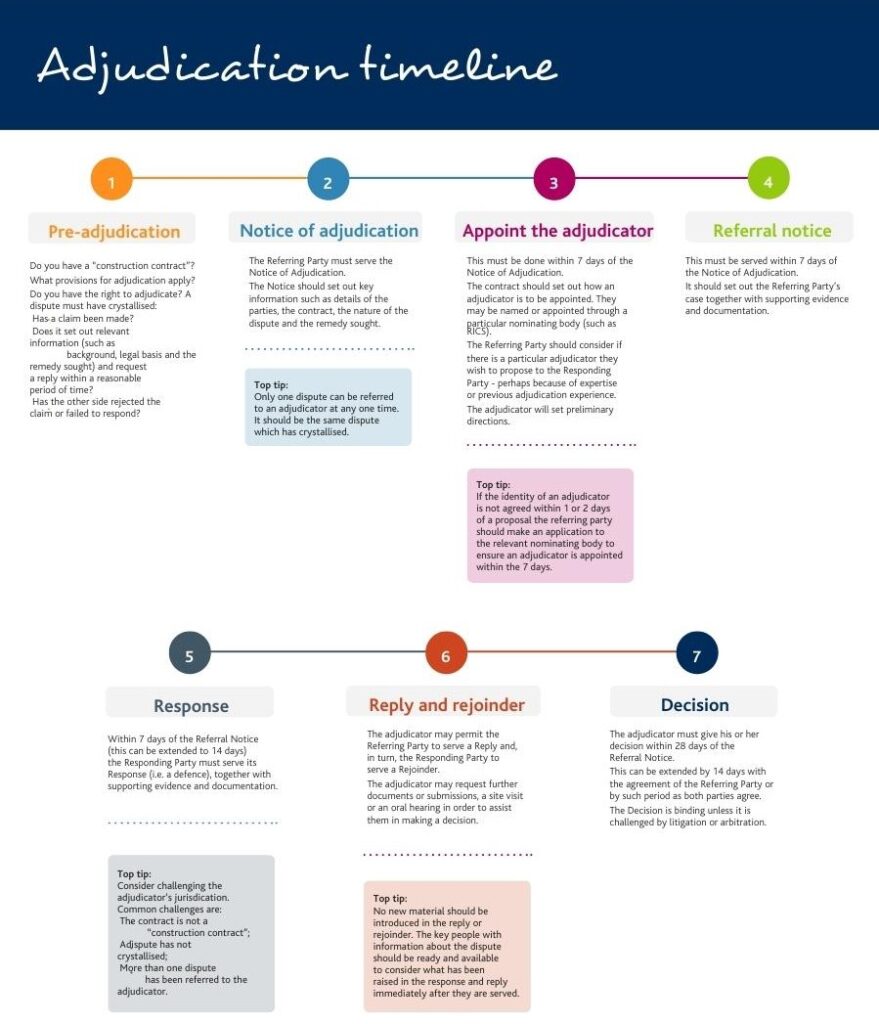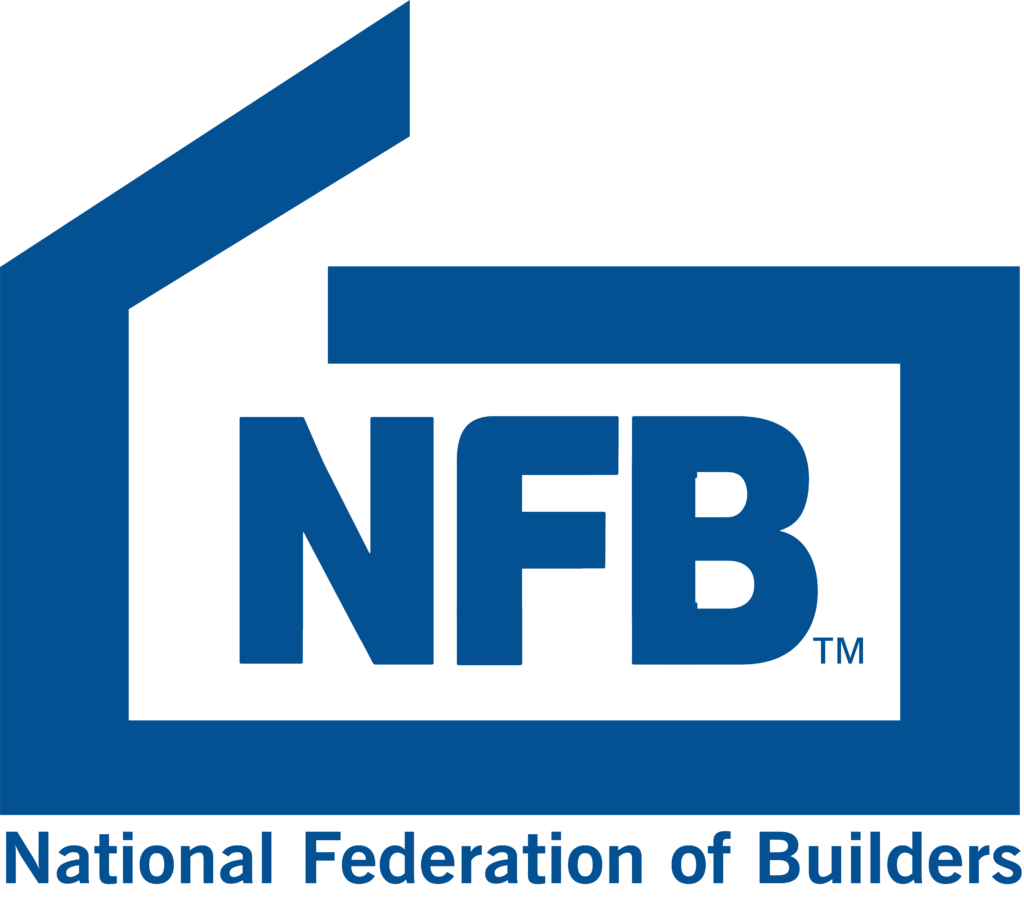What is adjudication in construction?
Adjudication is a simpler and a less expensive alternative to traditional litigation and allows parties to get a quick decision and move forward from disputes. An adjudicator’s decision is binding unless and until the parties choose to litigate the dispute through the courts or arbitration. A party to a construction contract has the right to refer a dispute to adjudication at any time and it is an effective tool to resolve disputes, which often relate to issues of cash flow, during the life of a project. You can also refer a dispute to adjudication after a project has finished.
Why opt for adjudication?
Construction adjudication is a cost-effective approach to dispute resolution as the process is designed to be fast, therefore reducing legal fees and ongoing costs. In most cases each party covers their own costs, and the adjudicator will decide which party (or, if both, in what proportion) should pay the adjudicator’s fees. Often, it will be the losing party. As the process usually only lasts for around 28 days,this enables parties to resolve disputes quickly and avoid major delays and additional costs to construction projects as well as preserve the parties’ working relationship.
Who can opt for adjudication?
All construction contracts, which are defined as such by the Housing Grants, Construction and Regeneration Act 1996, include a statutory right to adjudicate, as well as any contract that includes the option to refer disputes to adjudication. Whether your construction contract relates to property, roadworks, sewers, railways, harbours or a variety of other structures, we can help. A residential homeowner, however, can only refer a dispute to adjudication if the parties expressly agree to do so.
There are different adjudication procedures available to parties: commercial clients may choose ‘traditional’ construction adjudication under the Housing Grants, Construction and Regeneration Act 1996, or if disputes are less than £50,000 and do not involve complex issues, the Low Value Dispute Model Adjudication Procedure run by the Construction Industry Council may be appropriate. For consumer clients with a JCT Building Contract for a Homeowner/Occupier they may be able to refer disputes to a bespoke ‘homeowner adjudication’ service.
What does a construction adjudication solicitor do?
The construction team at B P Collins advises on all aspects of adjudication. Whether it is advice at the outset on the key contractual terms and merits of your claim/defence, challenging the adjudicator’s jurisdiction or putting together your claim or defence through identifying what evidence, documents and specialist external support are needed, our experienced solicitors are here to help you. Our construction dispute solicitors work with you to identify a proportionate strategy to achieve the outcome you need. We will clearly, and in plain English, work through the claim with you and give clear legal and strategic advice on how to move forward.
We will assemble and resource an experienced legal team to support you and which will include, if required, external support from other professionals in the construction industry. We will help you prepare what is needed to bring or defend a claim and will support you through all stages of the dispute resolution process – from beginning to end – to achieve your objectives.
You may need a solicitor who is experienced in adjudication for issues relating to any of the following in the construction and engineering industry:
- The standard of work i.e., building defects
- The valuation of work carried out
- Claims for extensions of time
- Delays and disruptions
- Interim payment and final accounts
- Other breach of contract claims
Whether you want to refer a dispute to adjudication or are responding to one, our solicitors can help you with all of the following:
- Reviewing your construction contract and advising on the right to refer a dispute to adjudication and giving you clear legal advice on the merits of a claim or defence
- Collecting key documentary and witness evidence and identifying what external support might be required (e.g., expert witnesses)
- Guiding you through the process of serving or responding to a Notice of Adjudication and appointing an adjudicator
- Preparing or responding to a Referral Notice, Response, Reply and Rejoinder
- Enforcing the adjudicator’s decision through the courts if needed
Construction adjudication process
The construction adjudication process is designed to be a faster, more efficient way to deal with any construction disputes. The general process is as follows:
- Pre-adjudication: Has the dispute ‘crystallised’? Crystallisation of a dispute means you have a construction contract and have contacted the other party detailing your claim and asking for a reply within a set time period in which they have not replied.
- Notice of Adjudication and Referral Notice: The referring party serves a Notice of the Adjudication which is then followed by a Referral Notice, detailing the referring party’s case.
- Appointing the adjudicator: An adjudicator must be agreed upon and appointed within seven days of notice being served. The parties involved can either agree on their own adjudicator or one can be appointed by a nominating body e.g. RICS, RIBA, CIC or ICE.
- Jurisdictional challenge: does the adjudicator have jurisdiction to actually determine the dispute?
- Response: The responding party must respond and submit evidence within seven days of the Referral Notice.
- Reply and Rejoinder: The adjudicator can request further documents and receive a Reply from the referring party, as well as a Rejoinder from the responding party.
- Decision: The adjudicator must make their decision within 28 days of the referral notice.
Due to the tight deadlines, the construction adjudication process ensures a resolution is met much faster than traditional litigation.
See below for a visual timeline of the adjudication process.
We are a member of the National Federation of Builders
Get in touch
For further information or advice on adjudication please call our lawyers on 01753 889995 or email enquiries@bpcollins.co.uk.




















